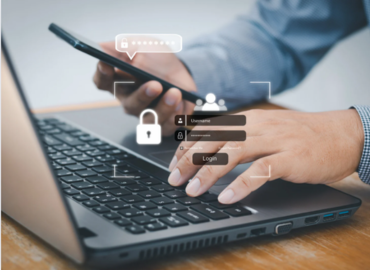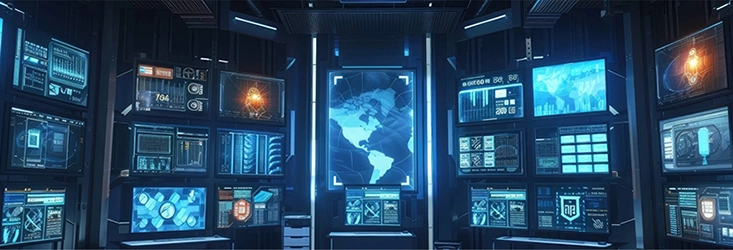Multi-Factor Authentication and CMMC

Today’s digital landscape requires safeguarding sensitive information to protect against increasingly sophisticated cyber threats. All companies, from large to small, need to fortify cybersecurity defenses to ward off potential breaches, and one powerful tool that has emerged as a cornerstone of cybersecurity is Multi-Factor Authentication (MFA). Notably, MFA isn’t just a security solution; it’s also a crucial element in meeting Cybersecurity Maturity Model Certification (CMMC) standards.
What is Multi-Factor Authentication (MFA)?
At its core, MFA is a robust security mechanism that requires users to provide multiple forms of identification before accessing a system, application, or network. MFA typically involves three factors of authentication:
- Traditional Username and Password: This is the first line of defense, but relying solely on this factor leaves systems vulnerable to password breaches and hacks.
- Using a Physical Token or Device: A smartphone or security key can generate a one-time code that can’t be easily replicated by attackers, enhancing security.
- Biometric Data: Fingerprints, facial recognition, or retina scans add a layer of uniqueness that is difficult for hackers to mimic.
The Significance of MFA in CMMC Compliance
The NIST 800-171 framework was developed to ensure that companies working with the U.S. Department of Defense (DoD) adhere to robust cybersecurity practices. With the release of CMMC, the bar for cybersecurity standards has been raised even higher, necessitating organizations to adopt advanced security measures in order to pass a certification audit.
CMMC mandates that organizations implement specific security measures to protect Controlled Unclassified Information (CUI). MFA aligns seamlessly with these requirements by significantly reducing the risk of unauthorized access, data breaches, and identity theft. By implementing MFA, companies can ensure that only authorized personnel gain access to sensitive systems and data, preventing potential breaches at the first layer of defense.
Types of MFA
The various levels of cybersecurity practices are categorized by CMMC into domains, and MFA may be a critical component across several of them. Common types of MFA methods include:
- One-Time Passwords: Generating unique passwords valid for a limited period are often sent to the user’s mobile device via SMS or generated by an authentication app.
- Biometric Authentication: Utilize fingerprint scans, facial recognition, or other unique biological traits to verify the user’s identity.
- Smart Cards: These are physical cards that contain a microchip or RFID tag, which users insert into a card reader for authentication.
- Push Notifications: Users receive a notification on their registered mobile device and must approve the login attempt.
- Security Keys: These are physical devices that connect to a computer or mobile device and generate one-time codes or use public key cryptography for authentication.
Embrace a More Secure Future with SSE
When it comes to cybersecurity, complacency is not an option. As cyber threats continue evolving, so must our defense strategies. MFA helps fortify access control measures and safeguards sensitive data. By integrating MFA into your cybersecurity framework, your organization can align with the requirements of CMMC and proactively secure its digital assets against the ever-evolving cyber risks.
MFA isn’t just an additional layer of protection; it’s a testament to your organization’s commitment to safeguarding its operations, clients, and future. Does your organization have MFA deployed? Let SSE help your business achieve better security with comprehensive cybersecurity solutions.
Contact SSE today to schedule an initial consultation.
Additional Blog Posts

CMMC Deadlines: Defense Contractors Face High-Stakes Compliance Timelines
As the U.S. Department of Defense accelerates enforcement of the Cybersecurity Maturity Model Certification (CMMC), thousands of Defense Industrial Base…
DOJ Ramps Up Cyber-Enforcement on Defense Contractors
The Department of Justice’s recent $4.6 million settlement with defense contractor MORSECORP sends a clear message to the Defense Industrial…
